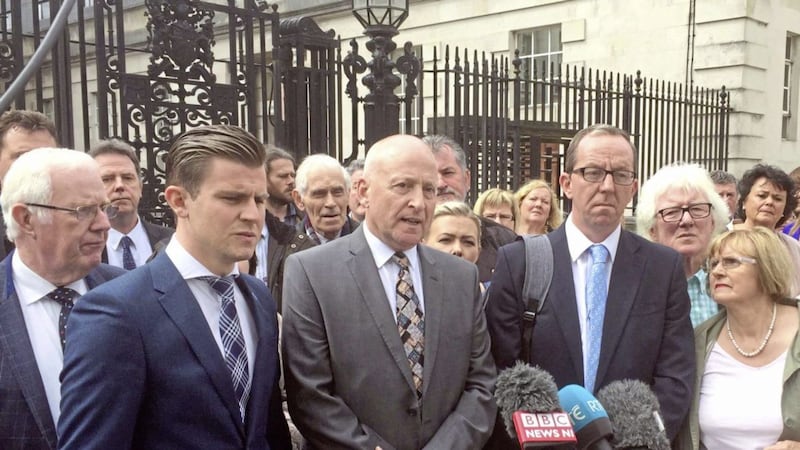Off-duty police officers and soldiers were allegedly involved in an "extraordinary pattern" of loyalist killings in Northern Ireland, the Court of Appeal heard today.
Senior judges were told members of the security forces were connected to weapons used by a paramilitary unit blamed for more than 100 murders during the 1970s.
Counsel for the brother of a teenager killed in one bomb atrocity linked to the so-called Glenanne Gang claimed the case for compelling police to now complete an overarching investigation into suspected state collusion is emphatic.
Chief Constable George Hamilton is appealing a ruling that his force unlawfully frustrated any chance of an effective probe into the series of deadly terrorist attacks.
Last year a High Court judge held that relatives who lost loved ones were denied in their legitimate expectation that the now-defunct Historical Enquiries Team (HET) would publish a thematic report.
He ordered police to finalise and publish a thematic report into the Glenanne killings.
The verdict was reached in a legal challenge brought in the name of Edward Barnard.
Mr Barnard's 13-year-old brother Patrick was among four people killed in a St Patrick's Day bombing at the Hillcrest Bar in Dungannon in March, 1976.
Five years later Dungannon UVF member Garnet James Busby received a life sentence after admitting his role in the no-warning attack and other terrorist offences.
The murder gang based at a farm in Glenanne, Co Armagh allegedly contained members of the Royal Ulster Constabulary and the Ulster Defence Regiment.
Up to 120 murders in nearly 90 incidents in Mid Ulster and Irish border areas are under scrutiny.
They include outrages such as the 1975 Miami Showband Massacre, where three members of the popular group were taken from their tour bus and shot dead on a country road in Banbridge, County Down, and the Step Inn pub bombing in Keady a year later, which claimed the lives of two Catholics.
It has also been linked to the murder of 33 people, including a pregnant woman, in the 1974 Dublin and Monaghan bombings.
A draft HET report into alleged security force collaboration with the killers was said to have been 80% finalised before being shelved.
Appealing the High Court ruling, counsel for the Chief Constable insisted the Hillcrest investigation met the "gold standard" of human rights obligations by securing a conviction.
He also argued that an HET review into the bombing identified no collusion with the killers.
But Danny Friedman QC, representing Mr Barnard, claimed a number of promises meant there was a compelling case for producing an overarching report.
"Even by the standards of this jurisdiction there is an extraordinary overlap of security force personnel," he said.
"Not just Ulster Defence Regiment personnel but police personnel, including their connections to weapons which, within the space of a few short years, killed people in multiple locations in these border counties."
Mr Friedman told the three appeal judges the case centred on a "state practice of involvement in killing".
Counsel continued: "(There was) an extraordinary pattern not of killing by proxy, but police officers and soldiers going out, off-duty, to kill people with the same guns and being very closely interrelated."
In a reference to Busby he also contended: "There are minimal degrees of separation between the convicted man and three (other) suspects."
The appeal continues.








